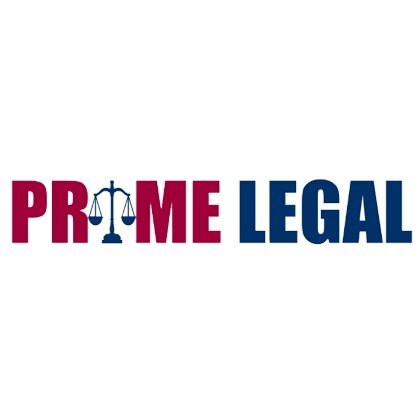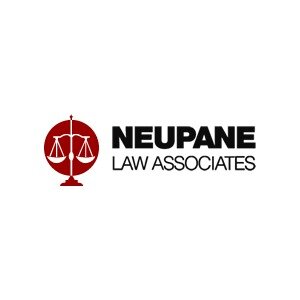Best Corporate Governance Lawyers in Nepal
Share your needs with us, get contacted by law firms.
Free. Takes 2 min.
Or refine your search by selecting a city:
List of the best lawyers in Nepal
About Corporate Governance Law in Nepal
Corporate governance in Nepal refers to the system by which companies and organizations are directed and controlled to ensure transparency, accountability, fairness, and responsibility in their operations. The core objective of corporate governance is to enhance the long-term value of a company while protecting the interests of all stakeholders, including shareholders, employees, customers, and the wider community. Nepal has developed its corporate governance framework based on the Companies Act, regulatory guidelines from authorities such as the Securities Board of Nepal, and best international practices.
Why You May Need a Lawyer
There are various situations where individuals or businesses in Nepal may need legal assistance with corporate governance matters. Some common scenarios include:
- Forming a new company and structuring its board or management roles.
- Understanding and complying with reporting and disclosure requirements.
- Drafting and reviewing corporate policies, codes of conduct, or governance manuals.
- Navigating disputes among shareholders, directors, or management.
- Ensuring compliance with local laws regarding annual meetings, record-keeping, and financial disclosures.
- Addressing shareholder activism, mergers, acquisitions, or takeovers.
- Handling regulatory investigations or mitigating potential penalties for non-compliance.
- Implementing or reviewing internal audit and risk management systems.
Legal experts help avoid costly mistakes and potential penalties by ensuring your company follows all aspects of the law.
Local Laws Overview
The foundation of corporate governance in Nepal lies primarily in the Companies Act, 2063 (2006), along with sector-specific guidelines from regulatory authorities like the Securities Board of Nepal (SEBON) and Nepal Rastra Bank for financial institutions. Key aspects include:
- Requirement for companies to hold regular board and general meetings, and keep proper records.
- Establishment of roles and responsibilities for boards of directors, managing directors, and other officers.
- Mandatory provisions for minority shareholder rights and protection.
- Guidelines for disclosure, transparency, and financial reporting, in compliance with Nepal Financial Reporting Standards (NFRS).
- Implementation of internal control and audit mechanisms.
- Provisions for resolving internal disputes, and regulatory oversight on matters like corporate fraud or malpractice.
- Sector-specific governance codes, particularly for publicly listed companies and banks.
- Obligations related to corporate social responsibility (CSR) for certain large corporations.
Staying up-to-date with changing local regulations is vital for any company seeking to maintain good governance practices.
Frequently Asked Questions
What is corporate governance and why does it matter in Nepal?
Corporate governance is the system of rules, practices, and processes by which a company is directed and controlled. In Nepal, it is essential for maintaining transparency, protecting stakeholders, and promoting sustainable business growth.
Who regulates corporate governance in Nepal?
Corporate governance in Nepal is mainly regulated by the Office of the Company Registrar, the Securities Board of Nepal (SEBON), Nepal Rastra Bank for banks and financial institutions, and sectoral regulators as applicable.
What laws primarily govern corporate governance in Nepal?
The Companies Act, 2063 (2006) is the primary law, along with sectoral guidelines from the Securities Board of Nepal and Nepal Rastra Bank.
Are there any separate rules for banks and listed companies?
Yes, banks, insurance companies, and companies listed on the Nepal Stock Exchange must follow additional governance codes and regulations specific to their industry.
What are the responsibilities of a board of directors under Nepalese law?
The board oversees major company decisions, ensures compliance with legal and ethical standards, monitors risk and internal controls, and acts in the best interest of the company and its stakeholders.
How are shareholder rights protected in Nepal?
Shareholders have rights to attend general meetings, vote on major company resolutions, receive dividends, access company information, and seek remedies for grievances under the Companies Act and other relevant laws.
What are the disclosure and reporting requirements for Nepalese companies?
Companies must maintain accurate accounting records, prepare annual financial statements, conduct audits, and disclose essential information to regulators, shareholders, and for public companies, the general public.
What are the penalties for non-compliance with corporate governance laws?
Penalties vary but may include monetary fines, suspension of licenses, restriction from conducting business, and in severe cases, imprisonment for responsible individuals.
Can disputes between directors or shareholders be resolved legally?
Yes, Nepalese law provides mechanisms for dispute resolution, including mediation, arbitration, and, if necessary, court intervention.
How can I improve corporate governance in my company?
You can improve governance by implementing clear policies, ensuring a well-structured board, conducting regular training, adhering strictly to local laws and sectoral codes, and seeking legal guidance when necessary.
Additional Resources
The following resources and organizations may be helpful for those seeking legal advice or information on corporate governance in Nepal:
- Office of the Company Registrar - the primary authority for overseeing company registrations and compliance.
- Securities Board of Nepal (SEBON) - the financial market regulator providing guidelines for listed companies.
- Nepal Rastra Bank - the central bank regulating governance standards for banks and other financial institutions.
- Institute of Chartered Accountants of Nepal (ICAN) - offers guidance on accounting, auditing, and financial reporting.
- Nepal Bar Association - the official association of lawyers in Nepal which can help you find specialized corporate lawyers.
- Federation of Nepalese Chambers of Commerce and Industry (FNCCI) - provides resources for business development and governance best practices.
Next Steps
If you suspect your company needs legal advice on corporate governance or if you are facing a governance challenge, consider taking the following steps:
- Analyze your specific need or issue related to governance.
- Gather any relevant documents, such as company bylaws, meeting minutes, or statutory records.
- Contact a lawyer or law firm in Nepal specializing in corporate law and governance to discuss your situation.
- Consult the Office of the Company Registrar or other regulatory authorities for initial guidance or assistance.
- Participate in training, seminars, or workshops on corporate governance offered by industry bodies or professional organizations.
Proactively addressing corporate governance issues with qualified legal support will help your company operate efficiently, maintain good standing with regulators, and build trust with stakeholders in Nepal's dynamic business landscape.
Lawzana helps you find the best lawyers and law firms in Nepal through a curated and pre-screened list of qualified legal professionals. Our platform offers rankings and detailed profiles of attorneys and law firms, allowing you to compare based on practice areas, including Corporate Governance, experience, and client feedback.
Each profile includes a description of the firm's areas of practice, client reviews, team members and partners, year of establishment, spoken languages, office locations, contact information, social media presence, and any published articles or resources. Most firms on our platform speak English and are experienced in both local and international legal matters.
Get a quote from top-rated law firms in Nepal — quickly, securely, and without unnecessary hassle.
Disclaimer:
The information provided on this page is for general informational purposes only and does not constitute legal advice. While we strive to ensure the accuracy and relevance of the content, legal information may change over time, and interpretations of the law can vary. You should always consult with a qualified legal professional for advice specific to your situation.
We disclaim all liability for actions taken or not taken based on the content of this page. If you believe any information is incorrect or outdated, please contact us, and we will review and update it where appropriate.
Browse corporate governance law firms by city in Nepal
Refine your search by selecting a city.

















